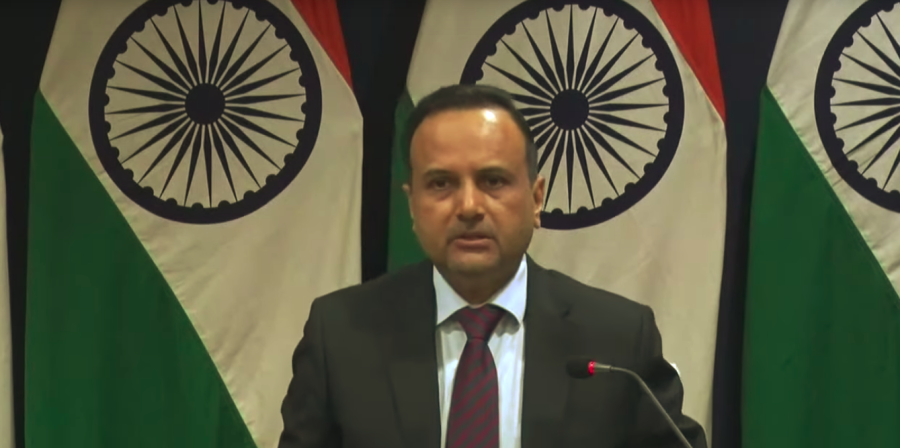National
India hints boundary talks unlikely during Gyawali’s visit
Joint Commission and boundary talks are two different mechanisms, says Indian Ministry of External Affairs, just as Nepal foreign minister lands in the Indian capital.
Suresh Raj Neupane
India has indicated that boundary talks with Nepal are unlikely during Foreign Minister Pradeep Gyawali’s visit to New Delhi.
Gyawali arrived in the Indian capital on Thursday to participate in the Sixth Meeting of the India-Nepal Joint Commission, a high level mechanism that deals with the entire gamut of bilateral relationship.
“Our position on the boundary issue is well known,” Anurag Srivastava, spokesperson for India’s Ministry of External Affairs, said during a regular press briefing on Thursday. “The joint commission and boundary talks are two different mechanisms.”
Responding to queries on Gyawali’s visit to Delhi, Srivastava said: “The foreign minister of Nepal arrived in New Delhi a short while ago. He is here to co-chair the sixth session of the India-Nepal Joint Commission Meeting. This meeting will be hosted by the external affairs minister tomorrow.”
“The joint commission is an important mechanism. It provides an opportunity for reviewing at high level the entire gamut of our bilateral partnership and to provide political guidance to further enhance the special and unique ties that exist between our two countries. We look forward to constructive discussions on the numerous sectors that encompass our bilateral agenda.”
Gyawali's is the first high level visit to Delhi from Kathmandu in over a year after a flurry of visits from the south in October and November last year.
Relations between Nepal and India had soured since November 2019 after Delhi published a new map including Kalapani within Indian territories.
New Delhi cold-shouldered Kathmandu’s call for diplomatic dialogue. Instead, in May last year, India opened a road link via Lipulekh to Kailash Mansarovar in the Tibet Autonomous Region of China. In response, Nepal published its own political map depicting Kalapani, Lipulekh and Limiyadhura as Nepali territories.
Both countries entered a state of cartographic war.
The stage for Gyawali’s visit to Delhi was set after India sent its foreign spy chief, Samata Goel, in October. Goel’s visit was followed by the visits Indian Army Chief MM Naravane and Indian Foreign Secretary Harsh Vardhan Shringla.
Indian Ministry of External Affairs’ indication that boundary talks are unlikely during Gyawali’s stay in Delhi comes as a setback for Prime Minister KP Oli who has once again ratcheted up his nationalist rhetoric after dissolving the House and declaring snap polls.
Gyawali, however, said he is unaware of Indian Ministry of External Affairs’ statement.
“I am not aware of India’s statement,” Gyawali told the Post. “But this [joint] commission is for discussing all bilateral issues, including the boundary.”




 21.12°C Kathmandu
21.12°C Kathmandu














